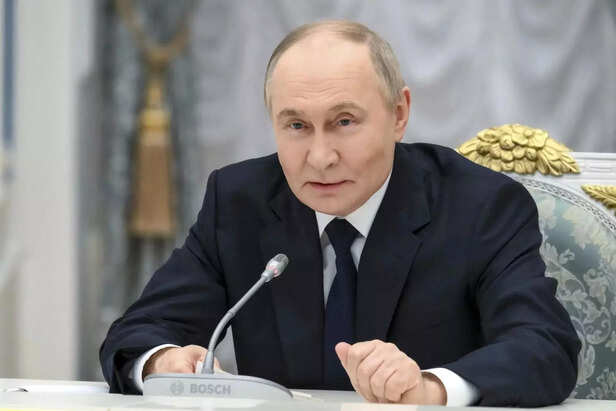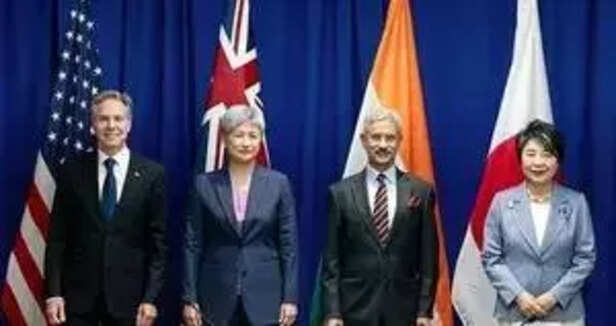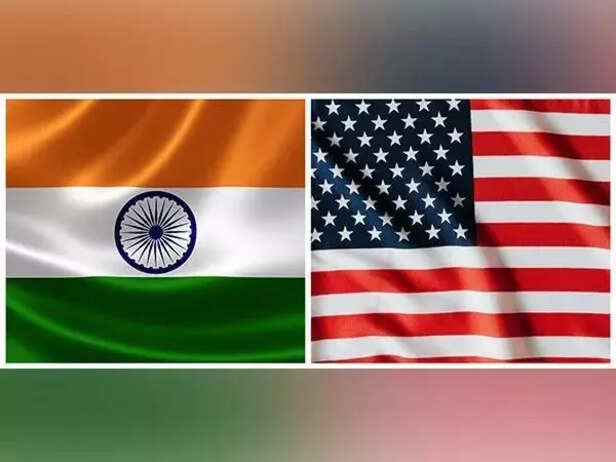“The U.S. Will Try to Weaken India Like It Did Russia and China”: Warns Top U.S. Economist
Nidhi | Jun 12, 2025, 13:46 IST
( Image credit : Times Life Bureau, Timeslife )
In a bold interview with Tucker Carlson, renowned U.S. economist Jeffrey Sachs warned that Washington will likely try to weaken India once it becomes a serious global power—just as it has done with Russia and China. Sachs criticized U.S. foreign policy as hegemonic and cautioned India against becoming a pawn in America's rivalry with China. He urged India to maintain its strategic independence and avoid getting trapped in U.S.-led alliances that ultimately serve American interests. “Friendship with the U.S. can be dangerous,” Sachs said—adding a chilling note to India's geopolitical rise.
What if America's warm handshake hides a cold strategy?
In a stunning interview with Tucker Carlson, world-renowned economist Jeffrey Sachs laid bare a truth few in Washington dare admit: the United States does not fear dictators—it fears competitors. Sachs warned that as India rises economically and geopolitically, it could soon face the same sabotage the U.S. has deployed against Russia and China.
“Someday when India succeeds, the U.S. would want to weaken India,” Sachs said.
Carlson didn’t blink: “Probably sooner rather than later.”
This isn’t speculation. This is a pattern. From CIA coups in the Middle East to sanctions on strategic competitors, Sachs argues that the U.S. doesn’t tolerate multipolarity—it dismantles it. And as India prepares to surpass the U.S. in economic scale within 15 years, Sachs has one urgent message for Delhi: Don't become America's pawn against China. Because when you're no longer useful, you're next.
After the Cold War, Russia was welcomed by the West and supported in its democratic transition. But as it regained economic strength and started asserting itself—particularly against NATO's eastward expansion—relations soured. The 2014 annexation of Crimea became the turning point, but tensions were brewing long before. The U.S. imposed sanctions, led diplomatic isolation efforts, and today frames Russia as a global villain. Sachs argues that Russia’s size, energy resources, and geopolitical reach—not just Putin—were always going to make it a target.
For decades, the U.S. enabled China's growth. It supported China’s WTO entry in 2001, profited from its manufacturing boom, and ignored early human rights abuses. But when China began leading in key technologies (like 5G, AI, and electric vehicles), expanded its Belt and Road Initiative, and challenged U.S. influence in Asia-Pacific, Washington responded with trade wars, tech bans (Huawei, TikTok), and military alliances (AUKUS, QUAD).
The message is clear: once you stop playing second fiddle, you become a problem. India is currently the world’s fastest-growing major economy. It is expected to become the third-largest economy by 2027 and could surpass the U.S. by mid-century. It’s not just about size; India is leading in digital payments, space exploration, pharmaceutical exports, and startup innovation. Sachs has previously called India’s rise "remarkable" and predicted it could overtake both China and the U.S. in the long run.
India is currently the world’s fastest-growing major economy. It is expected to become the third-largest economy by 2027 and could surpass the U.S. by mid-century. It’s not just about size; India is leading in digital payments, space exploration, pharmaceutical exports, and startup innovation. Sachs has previously called India’s rise "remarkable" and predicted it could overtake both China and the U.S. in the long run.
India’s independent foreign policy is part of what Sachs believes could eventually provoke Washington’s ire. During the Russia-Ukraine war, India continued to import Russian oil, defying Western pressure. It is also forging partnerships with Iran, purchasing weapons from France and Israel, and engaging with BRICS—all while refusing to be locked into one bloc.
India's growth presents a unique challenge: it’s a democracy. Unlike China or Russia, the West cannot use authoritarianism as a moral justification for confrontation. A successful democratic India undermines the narrative that the U.S. is the only viable leader of the free world.
The U.S., Australia, Japan, and India formed the Quadrilateral Security Dialogue (QUAD) to promote a "free and open Indo-Pacific." But Sachs sees it as primarily a U.S.-driven move to contain China. He warns that India is being positioned as a counterweight to Beijing—not for its own strategic benefit, but for American advantage.
Sachs draws attention to how the U.S. treats allies: as assets, not equals. Once their utility is over, or once they become too assertive, the U.S. has a history of turning on them. Examples include Pakistan after the Cold War, Iran in the 1970s, and even France in the early 2000s when it opposed the Iraq war.
"The U.S. wants to use India to beat up China," Sachs said. But he warns that this would compromise India's strategic autonomy. India should not inherit Washington’s enmities. Instead, it should pursue multipolar engagement, not bloc politics.
Sachs encourages India to maintain good relations with China, Russia, the U.S., the EU, and developing nations. This is in line with India’s civilizational philosophy of non-alignment. Participating in alliances that serve another country's dominance risks dragging India into conflicts that aren't its own.
Sachs’ central point is grounded in history: the U.S. opposes rising powers—not for what they do, but for what they represent. Once India becomes too powerful to control, Sachs warns, Washington’s tone will change.Tucker Carlson—no stranger to American strategic thinking—agreed with Sachs. When told that the U.S. would try to weaken India upon its success, Carlson responded: “Probably sooner rather than later.” This validates that Sachs’ analysis is not radical; it's an acknowledgment of a real strategic mindset within Washington.India’s success is not just economic—it’s symbolic. A non-Western, post-colonial, democratic power achieving global status without being a U.S. satellite is a threat to American dominance. That is why Sachs’ warning matters.
India must continue to rise—but it must also guard its independence fiercely. Friendship with the U.S. can be beneficial—but it must never come at the cost of sovereignty, strategic clarity, or being drawn into geopolitical conflicts that don’t serve the national interest.
Because the question is no longer if the U.S. will turn hostile.
The question is: Will India be ready when it does?
Explore the latest trends and tips in Health & Fitness, Travel, Life Hacks, Fashion & Beauty, and Relationships at Times Life!
In a stunning interview with Tucker Carlson, world-renowned economist Jeffrey Sachs laid bare a truth few in Washington dare admit: the United States does not fear dictators—it fears competitors. Sachs warned that as India rises economically and geopolitically, it could soon face the same sabotage the U.S. has deployed against Russia and China.
“Someday when India succeeds, the U.S. would want to weaken India,” Sachs said.
Carlson didn’t blink: “Probably sooner rather than later.”
This isn’t speculation. This is a pattern. From CIA coups in the Middle East to sanctions on strategic competitors, Sachs argues that the U.S. doesn’t tolerate multipolarity—it dismantles it. And as India prepares to surpass the U.S. in economic scale within 15 years, Sachs has one urgent message for Delhi: Don't become America's pawn against China. Because when you're no longer useful, you're next.
1. America’s Pattern: When Partners Become Rivals

Trump and Putin hint at US-Russia trade revival, but business environment remains hostile.
( Image credit : AP )
Russia: From Ally to Adversary
China: Trade Partner to Strategic Threat
The message is clear: once you stop playing second fiddle, you become a problem.

Trump says India is offering US a zero tariff trade deal.
( Image credit : IANS )
Economic Growth That’s Hard to Ignore
Not Aligned, Not Obedient
A Democratic Rival to U.S. Leadership
3. The Quad and the Dangers of Being Used

Commitment to humanitarian assistance, disaster relief remains strong_ Quad on 20th anniversary.
( Image credit : IANS )
The Quad: Strategic Alliance or Strategic Trap?
From Ally to Asset—and Then to Target
4. Sachs’ Strategic Advice to India: Don’t Get Played

India eyes expanded US energy imports to diversify sources, balance trade.
( Image credit : IANS )
Don’t Fight Someone Else’s War
Balance With All, Bind With None
History Is a Cautionary Tale
5. Carlson’s Confirmation: The Warning Isn’t Fringe
Don’t Confuse Support With Sovereignty
India must continue to rise—but it must also guard its independence fiercely. Friendship with the U.S. can be beneficial—but it must never come at the cost of sovereignty, strategic clarity, or being drawn into geopolitical conflicts that don’t serve the national interest.
Because the question is no longer if the U.S. will turn hostile.
The question is: Will India be ready when it does?
Explore the latest trends and tips in Health & Fitness, Travel, Life Hacks, Fashion & Beauty, and Relationships at Times Life!
